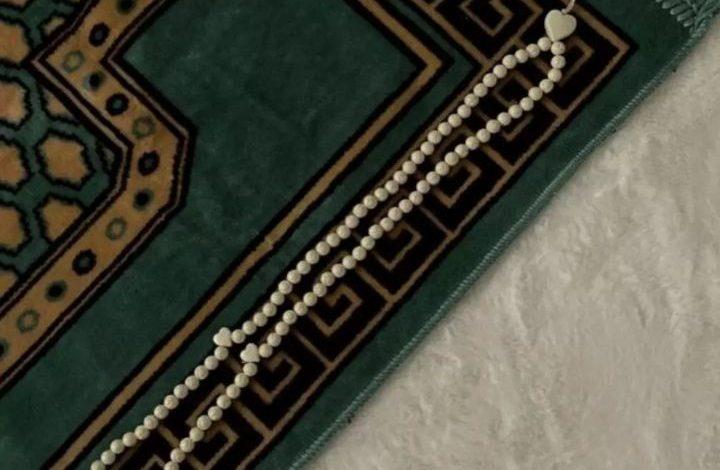Kitābu Al-Jāmi’i from the Book: Bulūghu Al-Marām by Ibn Hajar 09
Halqah Series: Episode 125

*Shar’h Session*
بسم الله الرحمن الرحيم
ومن تبعهم على الهدى إلى يوم الدين
الحمد لله رب العالمين
وأصلي وأسلم على من بعث رحمة للعالمين
وعلى آله وصحيه الغر الميامين
Assalāmu Alaykum Warahmatullāh Wabarakātuh
Honored brothers and sisters you are welcome to this day’s session of the Shar’h
We have taken the Hadīth:
And have explained its commentary
وعن ابن عباس قال: قال رسول الله صلى الله عليه وسلم: إذا أكل أحدكم طعاما فلا يمسح يده حتى يلعقها أو يلعقها. متفق عليه
From Ibn ‘Abbās who said: the Messenger of Allāh – salallāhu alayhi wasallam – said: “Whenever any of you has eaten food, let him not clean his hand until he has licked it, or had it licked.”
(Bukhārī and Muslim) Agreed Upon (its authenticity)
*The Seventh Hadīth*
The Imām said:
وعن أبي هريرة رضي الله عنه قال: قال رسول الله صلى الله عليه وسلم: ليسلّم الصغير على الكبير، والمار على القاعد، والقليل على الكثير. متفق عليه
وفي رواية لمسلم: والراكب على الماش
“From Abū Hurayrah – radiyallāhu ‘anhu – who said: the Messenger of Allāh – salallāhu alayhi wasallam – said: “Let the young initiate the Salām to the Old, the passersby to the Sitting, and the few to the many” (Al-Bukhāri and Muslim) Agreed upon (its Authenticity)
And in another Narration recorded by Muslim:
“And the Rider on the one Walking”
As for Abū Hurayrah – radiyallāhu ‘anhu – he was the illustrious Companion of the Rasūl – salallāhu alayhi wasallam – the Mujtahid Imām and Leader of the Huffādh
His name before Islām was ‘Abdush-Shams and the Rasūl – salallāhu alayhi wasallam – renamed him ‘Abdurrahman
He was ‘Abdurrahman Ibn As-Sakhr Ad-Dūsī Al-Yamānī
He accepted Islām in the year of the Battle of Khaibar which is the 6th year after the Hijrah and spent four years among the Companions of the Rasūl – salallāhu alayhi wasallam
He also took Ilm from Ubayy, Abū Bakr, ‘Umar, Ā’ishah, Usāmah, and others
He was a recorder from the Rasūl – salallāhu alayhi wasallam – and took much Ilm from him which Allāh blessed and granted acceptance and dominance throughout our history
Imām Adh-Dhahabī – rahimahullāh – mentioned that over 800 Imams took Ilm from him most of whom were Tābi’ūn – Rahimahumullāh
He lived his first four years in Islām alongside the Rasūl – salallāhu alayhi wasallam – in the Corridor of the Masjid and was among the foremost members of the Suffah
He was blessed with a penetrating insight and a very strong memory that enabled him memorize everything he heard from the Rasūl – salallāhu alayhi wasallam – from immediately he said it due to his closeness to him and his remaining with him through out the day when other Companions have left for their daily needs and occupations
He was known to be fair in complexion and tender looking, strong and disciplined
He passed away 59 years after the Hijrah at the age of 78 during the Caliphate of Mu’āwiya – radiyallāhu ‘anhu
And none of the Companions memorized the like of what he memorized – radiyallāhu ‘anhu
In this Hadīth the Rasūl – salallāhu alayhi wasallam – placed the onus of initiating the greeting of the Taslīm upon the young and not to the old as a mark of respect and a recognition of the elder one over the young
Radiyallāhu ‘anhu
May Allāh unite us with him in the Firdaws, āmīn
In this Hadīth, the Rasūl – salallāhu alayhi wasallam – commanded us to exchange Taslim among ourselves
1. It is the right of the older to be greeted by the younger as a mark of respect and recognition for Islām commands respect and honor for the elder
Likewise he mandated that the passersby make the Taslim upon the seated
2. The passersby makes Salām to the seated because he came upon him and he is new in that place. Likewise as a way of guaranteeing the seated that he is free from the evils of the passersby
And the few to the many
3. The fewer initiate the Salām to the more in number because they are more in number and have a greater right to anything for Allāh loves the unity of the Ummah
4. And the rider initiates the Salām to the walker as a way of instilling humility and respect in the rider for the walker. And a way of mending the heart of the walker that he may not be made to feel bad and humiliated by the rider
This is the Ādāb of Islām
And Allāh knows best
We shall stop here
Bārakallāhu fīkum
Jazākumullāhu Khayran




